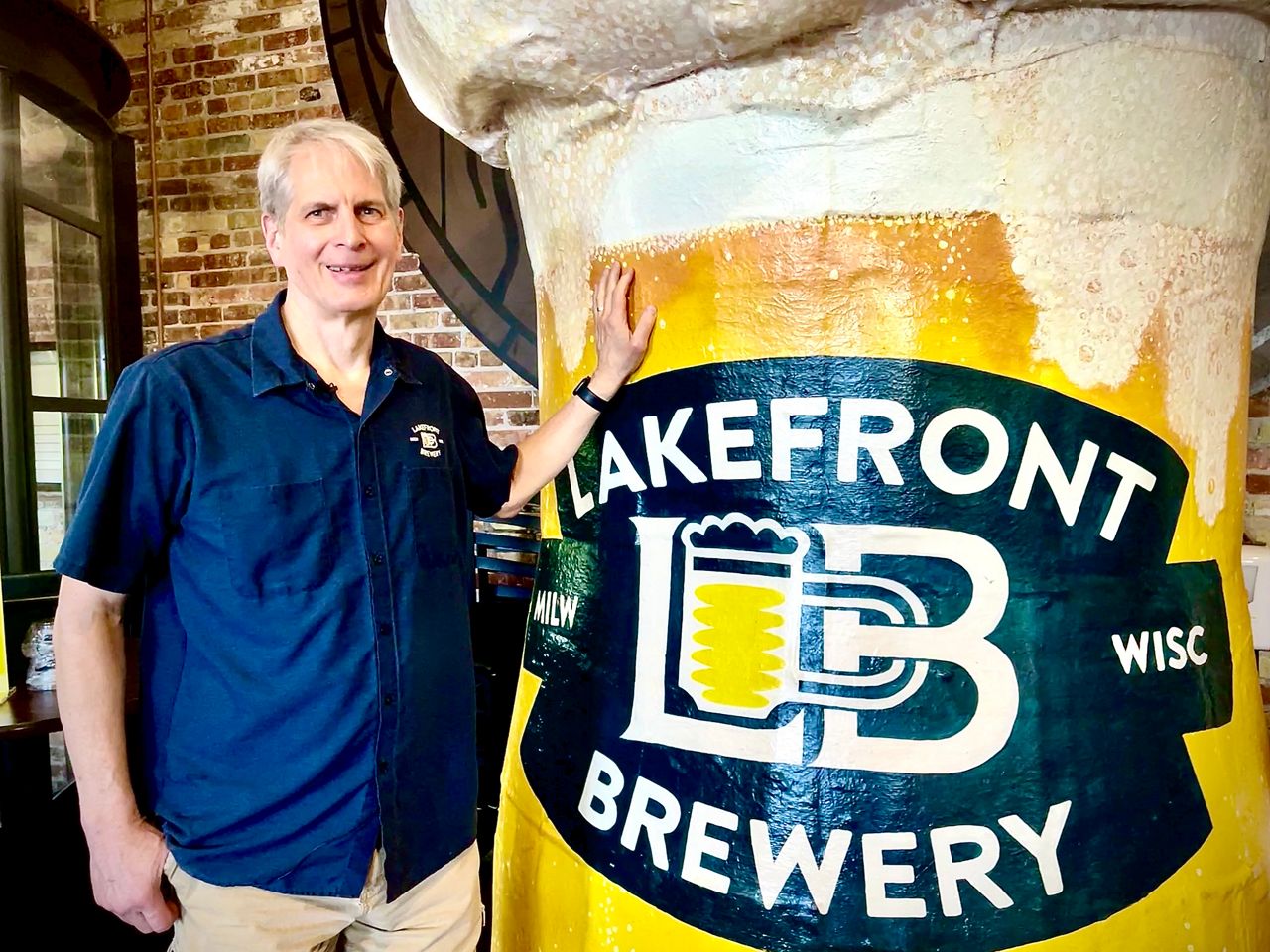MILWAUKEE — The craft brewing industry has made a shift in the past few years from bottles to cans. Milwaukee’s Lakefront Brewery made the transition late last year.
Russ Klisch is the owner of Lakefront Brewery. He said since the transition, the new assembly line is running smoothly and beer sales are up.
Klisch and his brother started brewing beer in the late 1980s in the city’s Riverwest neighborhood.

“In Riverwest, we basically had a 55-gallon stainless steel drum brewery. We just started out in kegs right away and that’s the only thing we had. Eventually I bought myself a little bottling machine,” said Klisch.
Klisch said in 1988, Lakefront produced 80 barrels of beer. Last year, his business brewed over 39,000 barrels of beer.
Klisch said staying relevant has been a key to his success. That is why he recently switched his bottle assembly line to cans.

“It’s easier to stack, a lot less weight, more environmentally friendly, more room in your refrigerator, warehouse has more room, I think it’s a better product, no light gets in the can,” said Klisch.
He said the weight of one load of cans in a truck equals about three trucks filled with bottles. He said about 70% of craft brewers have now transitioned to cans.
Yovani Echeverria has been a line operator at Lakefront Brewery for about 10 years. He said transitioning from bottles to cans was a major adjustment, but now he’s excited for the future.
“I like it now. You gotta get used to it, and it’s going to be good for the environment as well,” said Echeverria.
Klisch said cans cost less, which helps him keep prices steady for his customers despite inflation. He said the can assembly line was a huge change for his brewery, but believes it was worth the $2.5 million investment.
“Essentially when we went from bottles to cans, it was like we took the heart out of the patient and had to get it back in here and get it running right away,” said Klisch.



